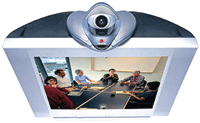Over 400 000 learners to get free education in Africa
Over 400 000 learners in Mpumalanga in Africa stand to benefit from the government's “no-fee schools”. This is apart from the introduction of ICT in public schools that has received impetus by the launch of the provincial ICT Strategy. Currently the province had 983 “no-fee schools”. School principals are not allowed to charge school fees in these schools.
The government would enroll 26 000 participants in the Adult Basic Education and Training (ABET) courses in the 2007-2008 financial year, at the cost of R90 million. A total of 45 public schools in Mpumalanga have each been allocated 25 computers for the introduction of an ICT laboratory.
USA Government gives funds for videoconferencing in schools USA Government agencies are giving funds to put video conferencing system in schools. The Rural Development under secretary Thomas Dorr, has given US$25,853,991 funds of 103 distance learning and telemedicine to provide educational and medical services to citizens of 38 states.
USA Government agencies are giving funds to put video conferencing system in schools. The Rural Development under secretary Thomas Dorr, has given US$25,853,991 funds of 103 distance learning and telemedicine to provide educational and medical services to citizens of 38 states.
Futurelab offers learning via mobile phones in UK
Futurelab, an education innovator has published a new handbook for students of United Kingdom, which will allow students to use mobile phones, PDAs and pocket PCs for learning.
Handhelds-learning with handheld technologies is packed with practical advice and is a must for any school or local authority considering using mobile devices for learning. The handbook is a result of 2-year research programme, involved 26 schools across two local authorities. These handheld devices have the potential to enable personalised, collaborative learning, and facilitate new relationships between teachers and pupils as well as between home and school.
Word Bank report: Nigeria not utilises e-learning programmes
The World Bank report shows that Nigeria is not utilising e-learning methods for effective and coordinated delivery of programmes.
According to the Bank report, distance learning is widespread at the time of the report but it not coordinated and limited to tertiary education programmes. Although many universities have developed the e-learning programmes, yet they have not utilised e-learning programmes properly. Under this report, only few ICT opportunities in teaching curricula existed as well as little development of ICT-based teaching and learning resources.
Developing nations to test US$150 laptops From Brazil to Pakistan, some of the world's poorest children are to peer across the digital divide in February – reading electronic books, shooting digital video, and chatting with classmates online. Founded by Massachusetts Institute of Technology academics, the non-profit 'One Laptop per Child' project plans to roll out nearly 2,500 of its US$150-laptops to eight nations in the month of February.
From Brazil to Pakistan, some of the world's poorest children are to peer across the digital divide in February – reading electronic books, shooting digital video, and chatting with classmates online. Founded by Massachusetts Institute of Technology academics, the non-profit 'One Laptop per Child' project plans to roll out nearly 2,500 of its US$150-laptops to eight nations in the month of February.
State educators in Brazil, Uruguay, Libya, Rwanda, Pakistan, Thailand and possibly Ethiopia and the West Bank will receive the first of the machines in February's pilot.
Learn English grammar via mobile phones
The Mennonite Centre in United Kingdom is one where students are using mobile phones to learn english language.
 Students are using mobile phones to download english grammar lesson and answer series of multiple choice, true or false questions. Athabasca University, a long-distance post- econdary school, created the cellphone lessons for those wanting to learn english as a second language (ESL). Students from anywhere in world can learn english grammar, through their cell phones.
Students are using mobile phones to download english grammar lesson and answer series of multiple choice, true or false questions. Athabasca University, a long-distance post- econdary school, created the cellphone lessons for those wanting to learn english as a second language (ESL). Students from anywhere in world can learn english grammar, through their cell phones.






















